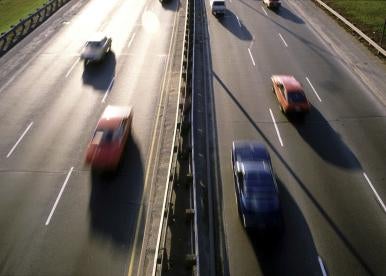Agency says drivers are employees, not independent contractors
In a move that could potentially disrupt a burgeoning industry, a hearing officer for the California Labor Commissioner decided earlier this month that a former Uber driver is an employee under California law, not – as Uber contends – an independent contractor. (For those not familiar with the company, Uber developed and supports a “ridesharing” smartphone app that allows users to request rides from persons driving their own private vehicles.) The finding means that, according to the California Labor Commissioner, Uber is required to pay all of its California-based drivers in accordance with state wage and hour laws, reimburse them for any expenses necessarily incurred while they perform work (i.e., fuel and mileage), and compensate non-exempt employees for overtime hours.
We first covered this issue discussing two federal class action lawsuits (O’Connor v. Uber Technologies, Inc. and Cotter v. Lyft, Inc.) in which drivers for Uber and Lyft, Uber’s competitor, have sued to be compensated as employees rather than independent contractors. Rather than joining in these pending cases or filing her own lawsuit, former driver Barbara Berwick instead filed a claim against Uber with the California Labor Commissioner’s Office, alleging that, as an employee, Uber owed her for wages earned over a three-month period, fuel costs, mileage, and associated penalties. In considering her claim, the Commissioner’s officer weighed over a dozen factors, including 1) whether the person performing services is engaged in an occupation distinct from the principal; 2) whether the service requires a special skill; 3) whether the principal or the worker supply the necessary materials; 4) whether the work being done is an integral part of the regular business of the employer; and 5) the alleged employer’s investment in the equipment or materials required for the work.
Finding that Uber is “involved in every aspect of the operation,” from vetting drivers and setting minimum vehicle standards to disbursing refunds and controlling the software used, the Commissioner held that Ms. Berwick qualified as an employee under California law. The officer noted that Ms. Berwick used no managerial skills in her work and made no investment into the business other than her car. Also significant were the facts that “[w]ithout drivers such as Plaintiff, [Uber’s] business would not exist,” and “[b]ut for [Uber’s] intellectual property, Plaintiff would not have been able to perform the work.”
As of now, the California ruling pertains only to Ms, Berwick. But former chairperson of the NLRB, Wilma Liebman, stated that she “wouldn’t be surprised if there’s a flood of similar kinds of claims.” Comparable claims had been filed in Georgia, Pennsylvania, Texas, but tribunals there categorized the drivers as independent contractors. However, an Uber driver from Florida recently succeeded in his claim for employee status.
Uber has appealed the California ruling and stated that it planned to appeal the Florida decision. For businesses in the “on-demand” industry, such as Instacart (personal shoppers), food delivery (GrubHub), Uber, and Lyft, these proceedings could have major impacts on the vitality of their business models.



 />i
/>i
